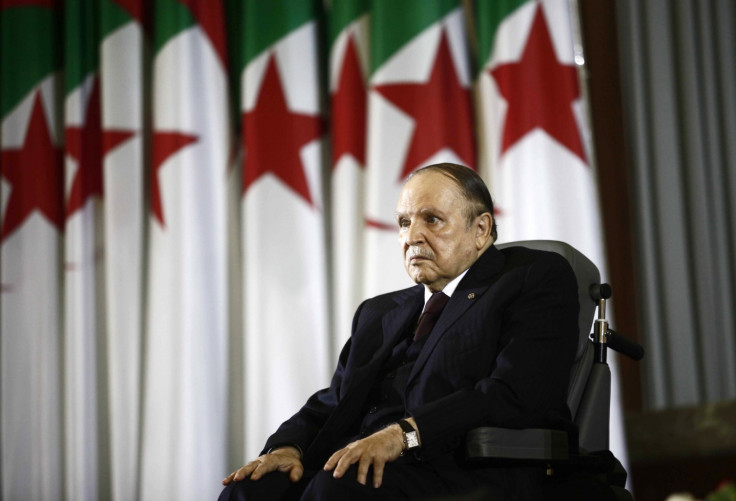Falling Energy Prices Make Algeria's Latest Five-Year Plan its Most Important Yet

Abdelaziz Bouteflika was re-elected as Algeria's president for the third time this summer, meaning it will be his fourth term at the helm of the North African state. The 77-year-old oversaw a period of rapid economic growth when he first took office in the late 1990s.
The energy-rich OPEC (Organization of the Petroleum Exporting Countries) member had once been a powerhouse on the tip of the continent, exporting gas and oil to Europe. Bouteflika's other re-elections have been accompanied by five-year-long economic plans and his latest victory at the polls was duly followed by another economic strategy.
The latest move is supposed to "develop a productive and diversified economy", according to a statement released by the Algerian cabinet in August.
Bouteflika's first five-year plan, from 2005 to 2009, saw the government spend $200bn (£122bn, €156bn) for infrastructure projects. It was renewed in 2010, as the government ploughed $286bn in to the incomplete projects, as well as launching others.
While the investment plans have managed to quell social unrest, the likes of which helped to topple leaders in near neighbours Libya and Tunisia, the projects have been greeted with disappointment by economists. In a bid to boost the effectiveness of the spending plans, Bouteflika has ordered private sector businesses to become involved in the new scheme.
With energy prices sagging and experts predicting a continuation over the coming few years, Algeria's tried-and-tested growth model will not be able to bring in the same levels of returns. It relies on oil and gas for around 97% of its export earnings.
"With the economy struggling, the authorities have increasingly relied on fiscal policy to fuel growth and to quell social unrest," said Capital Economics in a September note. "Things are only likely to get worse if oil prices fall over the coming years; as we expect, large twin deficits of over 10% of GDP will become the new norm."
Moreover, the country imports more than $50bn (£30.1bn, €39bn) worth of goods annually including, including on essentials such as food and pharmaceuticals.
While the government has built up substantial reserves that could be used to offset any short-term deficits, the country is facing further long-term challenges that pose a significant problem.
The much-maligned business climate in the country has pushed foreign firms out of the country, while putting off new investors.
Capital rates Algeria as the worst business environment in the Middle East and North Africa region. "Inefficient bureaucracy and corruption are cited as being the most problematic factors for doing business in Algeria. Indeed, the country ranks a lowly 94 out of 177 on Transparency International's Corruption Perceptions Index," Capital said.
Moreover, insecurity has become an acute challenge in the provinces where much of its energy facilities are located.
The notorious In Amenas siege of January 2013 saw 800 people taken as hostages, with 40 of them being killed by al-Qaida-linked militants.
With militants enjoying relative freedom to operate in remote areas of the country and corruption showing no signs of improvement, foreign businesses are unlikely to invest in the near-term.
While its currency reserves will stave off financial jeopardy in the short-term, the economy's reliance on global energy prices could prove to be painful for the Algerian government in the long-term.
© Copyright IBTimes 2024. All rights reserved.






